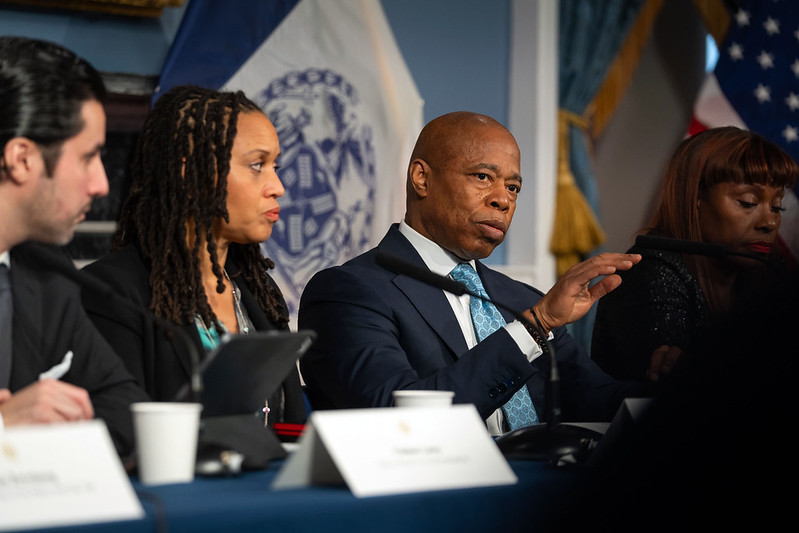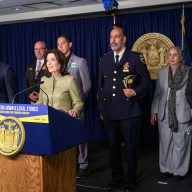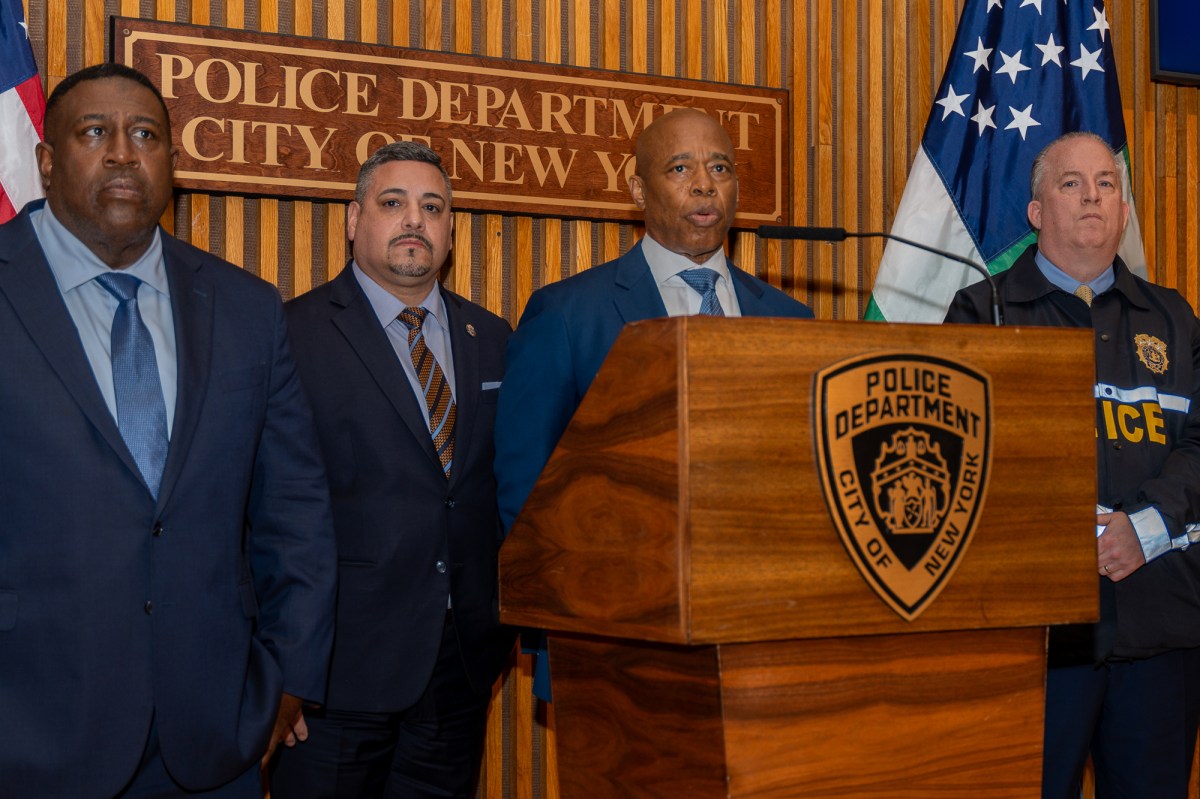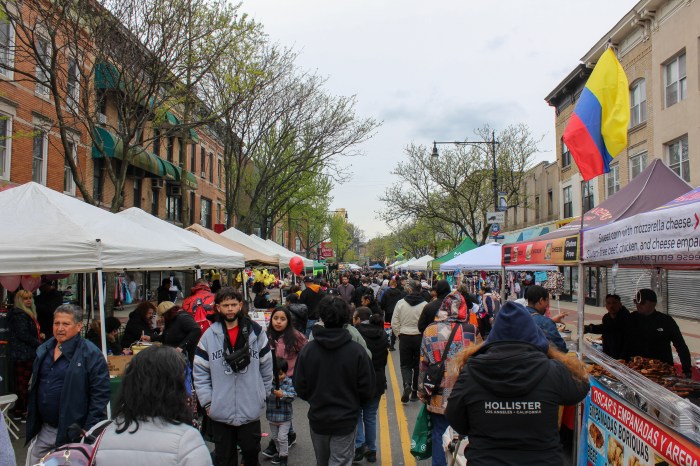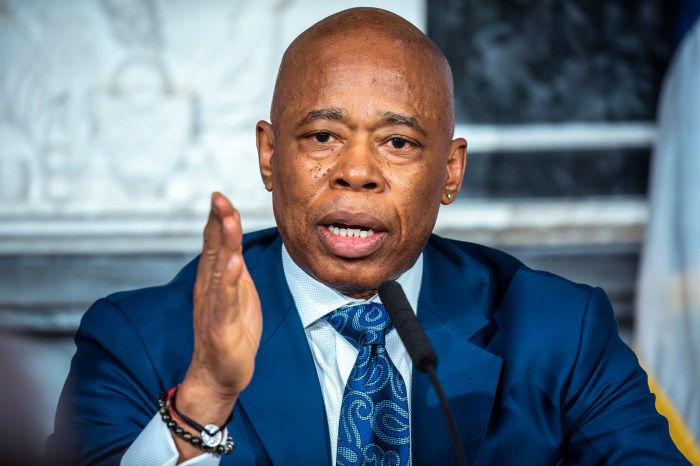By Philip Newman
U.S. Reps. Gregory Meeks (D-Jamaica) and Vito Fossella (R-Staten Island) called Tuesday for bipartisan congressional approval of a Wall Street bailout in the name of preserving the American economic system in an unusual joint appearance by two city politicians from opposing sides of the political spectrum.
Speaking in a cul-de-sac literally outside the front door of the New York Stock Exchange, the legislators said not only members of Congress but their constituents must understand the gravity of the situation.
“We cannot allow this crisis to bring down our very financial system,” Meeks said amid midday crowds and untold numbers of tourists crowded into the already jammed Wall Street strip between Broadway and Broad Street.
How will you persuade congressional colleagues from places such as Kansas and Texas that their affirmative vote favoring a bailout is essential?, a reporter asked.
“We respect the stance of our fellow members of Congress,” Fossella said. “But they are vulnerable as are Wall Streeters. They could wake up one morning to find their IRAs and other monetary assets in jeopardy or worse.”
“We must get through to everyone that this issue is neither Republican nor Democratic,” Meeks said. “Our financial system is at stake.”
Underscoring the call for a bipartisan rescue, Meeks is a liberal Democrat and Fossella is a conservative Republican.
Only one member of the New York City congressional delegation, Jose Serrano (D-Bronx), voted against the bailout package at Monday's stunning defeat.
Meeks called for a new vote on a bailout before this coming weekend.
“Time is of the essence since this thing could affect markets not only here but throughout the world,” Meeks said.
Two hours later the Dow Jones industrial average closed up by 485.21, erasing a significant portion of Monday's 777-point plunge after the bailout plan was voted down.
Scores of television cameras lined Wall and Broad streets with reporters interviewing bystanders, investors and workers on the subject of financial uncertainty on what is known as “The Street.”









